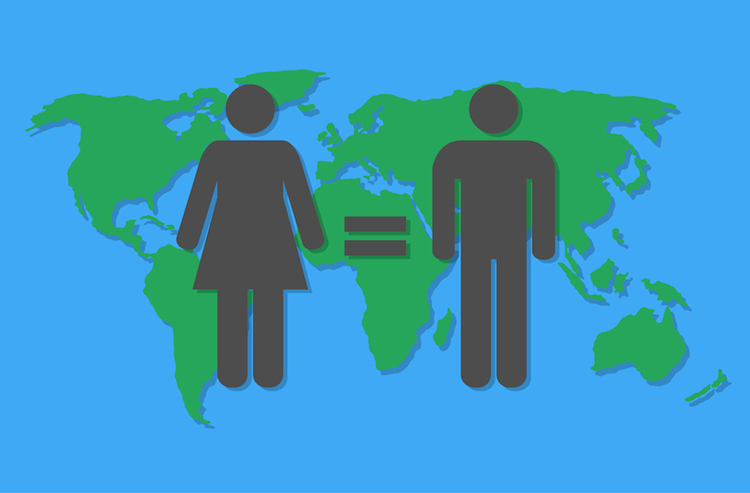The name, Franca Afegbua, may not sound familiar among contemporary Nigerian politicians. But that does not change anything. Franca made history in 1983 when she became the first woman to be elected to the Senate in Nigeria. Although that Senate was later swept away through a military coup a few months later, she did what no Nigerian woman had ever done.
That was more than 40 years ago when the mere thought of getting elevated above a man, even in the public service, was not popular. The questions that come to mind quickly are: If Franca dared it and made it, why are our women still under-represented in state and national politics? Why has her courageous step, more than forty years ago, not pave the way for other women?
Nigerian women are not timid. But the shocking reality is that while they are creating waves in business and academics—emerging as industrial lords, bank chiefs, and professors—the same women continue to hold a miserable percentage of seats in the States Legislature and the National Assembly.
This is happening in a nation where women make up nearly half of the population, and half of those should vote.What this implies is that they keep voting for others while no one is ready to vote for them! Every four years, courageous women step out to seek political offices, but just before the voting begins, they are edged out of the race. Injustice!
This connotes that the present system is against the women, and that change or the difference would only be made with a systemic alteration. Something drastic has to happen to create rooms for meaningful women participation in politics in Nigeria.
That is what makes the unfolding events at the National Assembly quite interesting. The federal lawmakers are currently debating clauses in the Gender Inclusion (Reserved Seats) Bill, and the stakes couldn’t be higher. This bill is not just about trying to be fair to women; it is also about the future of Nigeria.
The bill in question, seeks to statutorily reserve agreed number of legislative seats for our women across the country—that is, both in the States and National Assembly.
Sponsors of this bill have repeatedly dispelled the widespread misconception that reserved seats are some kind of pity gift to women.No, they are not! This is what the system demands now.A political game that has been rigged for decades is about to be reset, and reserved seats would serve as the reset button.
As a result of cultural barriers, political violence, and exorbitant campaign costs, women have been unable to fairly earn political power. While a select few pioneers were able to scale those walls, the current system is designed to prevent majority of women from stepping into the shoes of the ancient heroes.
Many nations, from Rwanda to India, have come to the realisation that this is the way to go in order to correct the imbalance. They have established the quota system which has swallowed the discrimination and created successful political advantage for the female gender.
In Rwanda, women make up 61 per cent of the parliamentary body. Their economy is one of the most rapidly expanding in all of Africa. The reforms in education and microfinance in Bangladesh were driven by women with reserved seats in Parliament. After years of debate, India has finally enacted a law that mandates the reservation of 33 per cent of parliamentary seats for women.
Nigeria should learn from these countries. Or it will continue to fall behind. What do we expect to happen when women form a reasonable minority—we are not even talking about majority yet—in the legislature? There would be explosion of people-friendly laws that will open up opportunities in business and career.
Small-business loans, family-friendly infrastructure, and policies that spark grassroots growth are areas that women lawmakers are more likely to excel in advocacy, which is a positive development for the nation’s economy. Nigeria cannot afford to ignore such an opportunity.
Women will surely advocate pursuit of issues that will benefit families and communities—issues such as provision of functional schools, healthcare, and security. The ongoing crisis across Nigeria—especially in the north east, south east and the Niger Delta—exemplify the consequences of disregarding these priorities.
When decision-makers understand real-life challenges facing families and communities, they would be qell equipped to bring such perspectives to the table. This is what our Nigerian women are good at doing. Depriving them of the opportunity has been unfair and would remain so except something is done.
At present, the Nigerian economy is teeming with opportunities.What is required is for policymakers to be more perceptive. Women in parliament have the potential to change the game.
Imagine this: over 70 per cent of Nigeria’s food is grown by women farmers, but they have difficulties acquiring land or obtaining bank loans to execute their farming projects. Female legislators can campaign for land reforms and technology-driven farming support that can be extended to the rural farmers.
In terms of health and social care, Nigeria continues to shamelessly parade one of the highest maternal mortality rates in the world. This is something that can be overcome with improved investment in the health sector. Women in positions of authority can advocate essential life-saving services such as healthcare, reproductive services, and clean water.
It is incontrovertible that the education of the girl child enhances the incomes of families and reduces the mortality rate of children. Again, this is one area that has suffered serious setbacks in many parts of Nigeria. Female legislators, cognisant of this situation, will provide funding for education, schools, and secure learning environments.
Today, women dominate the small-business scene in Nigeria, especially in the fields of technology and innovation. Who else would be better suited to design policies regarding digital finance, startups, and the expansion of broadband?
To further enhance small-businesses in Nigeria, female legislators can accelerate clean energy and rural electrification legislation that would result in creation of green jobs and power supply.
The above narratives and expectations constitute a part of the reason the Gender Inclusion Bill must be passed by the National Assembly. First, it would help narrow the gap in representation. It would also help formulate programmes that are tailored to meet the specific requirements of women and families. It will serve as the key to unlocking economic growth.
Passing this bill is not a charitable act. It is a more intelligent approach to economics and governance.History rarely allows for a second chance. At this very moment, the tenth National Assembly is holding one.
My appeal to the lawmakers is to prioritise progress over politics. They hold in their hands the machinery to decide how to construct a Nigeria in which our daughters will not be required to fight the same battles that our mothers fought. The evidence is unmistakable. A global audience is observing. Moreover, the time has come. Let’s have a gender inclusion law now!
Elezieanya is the South-South Coordinator for the Reserved Seat Bill Coalition.






